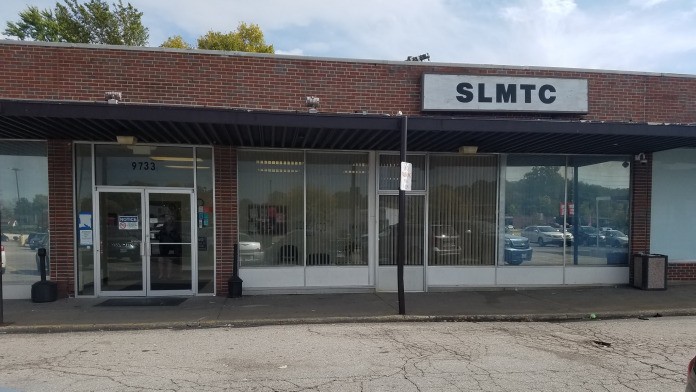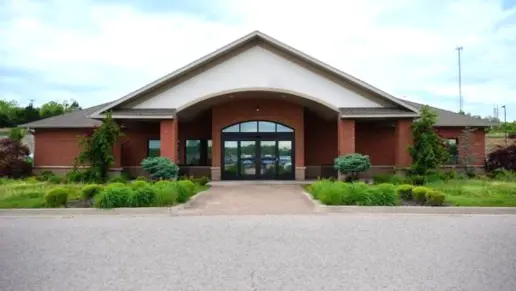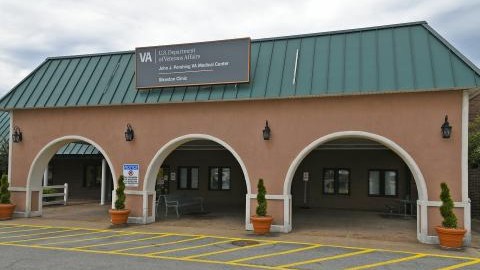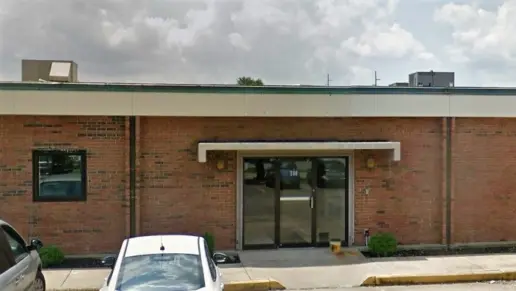I am very grateful for this place. It saved my life. The owner John is amazing. My counselor is Todd and he is the reason I am on the path that I am on now. I would recommend this place to anyone wanting help with there addictions.
About St. Louis Metro Treatment Center
New Season’s St. Louis Metro Treatment Center is an outpatient opioid addiction recovery facility in Breckenridge Hills, Missouri. This facility also serves men and women affected by opioid use disorders in surrounding neighborhoods. These services are affordable and they accept Medicaid and Medicare. This makes paying for treatment easy.
The facility primarily offers medication assisted treatment (MAT). This has been proven to be an effective addiction treatment for opioids and alcohol. This technique uses FDA approved medication alongside counseling and therapeutic interventions to support recovery. The facility boasts multiple choices of medicine for this purpose. The specific medications will depend on your individualized treatment plan. Available options include methadone, buprenorphine and Suboxone. These meds eliminate or reduce withdrawal symptoms and curb cravings. This makes it easier for you to focus on individual, group and family counseling.
Counseling groups help you tackle negative behavioral patterns triggering your opioid use and develop sound coping skills against such triggers. You may be taught essential life skills like effective communication, stress/anger management and relationship building. This helps you live both emotionally and physically healthy. Family counseling enables you to rebuild trust, mend relationships and improve communication with loved ones. This strengthens your support network and further supports your recovery.
Combining MAT and behavioral therapy this way effectively addresses the physical and psychological aspects of addiction. The clinic emphasizes confidentiality while giving you the support you need for lasting recovery. They even offer take home options to encourage you when you meet key recovery milestones.
Aftercare services may involve referrals to peer support groups like AA/NA for ongoing support or connection to community resources that support your recovery. This may include supportive housing, employment assistance or medical care.
Rehab Score
Gallery


Location
Other Forms of Payment
Private insurance refers to any kind of healthcare coverage that isn't from the state or federal government. This includes individual and family plans offered by an employer or purchased from the Insurance Marketplace. Every plan will have different requirements and out of pocket costs so be sure to get the full details before you start treatment.
Self-pay involves paying for treatment out of your own pocket. You can use savings or credit, get a personal loan, or receive help from family and friends to fund your treatment. If you don't have insurance or your insurance plan doesn't cover a specific program, self-pay can help ensure you still get the care you need.
Financial aid can take many forms. Centers may have grants or scholarships available to clients who meet eligibility requirements. Programs that receive SAMHSA grants may have financial aid available for those who need treatment as well. Grants and scholarships can help you pai for treatment without having to repay.
Medicaid is a state based program that helps lower-income individuals and families pay for healthcare. Medicaid covers addiction treatment so those enrolled can use their coverage to pay for rehab. When a program accepts Medicaid the client often pays very little or nothing out of their own pocket.
Medicare is a federal program that provides health insurance for those 65 and older. It also serves people under 65 with chronic and disabling health challenges. To use Medicare for addiction treatment you need to find a program that accepts Medicare and is in network with your plan. Out of pocket costs and preauthorization requirements vary, so always check with your provider.
Addiction Treatments
Levels of Care
Treatments
The goal of treatment for alcoholism is abstinence. Those with poor social support, poor motivation, or psychiatric disorders tend to relapse within a few years of treatment. For these people, success is measured by longer periods of abstinence, reduced use of alcohol, better health, and improved social functioning. Recovery and Maintenance are usually based on 12 step programs and AA meetings.
Drug rehab in Missouri usually involves several phases: detox, rehab, and aftercare. The rehab phase may include a combination of inpatient and outpatient treatments, as the individual moves through a continuum of care on their recovery journey.
Opioid rehabs specialize in supporting those recovering from opioid addiction. They treat those suffering from addiction to illegal opioids like heroin, as well as prescription drugs like oxycodone. These centers typically combine both physical as well as mental and emotional support to help stop addiction. Physical support often includes medical detox and subsequent medical support (including medication), and mental support includes in-depth therapy to address the underlying causes of addiction.
Substance rehabs focus on helping individuals recover from substance abuse, including alcohol and drug addiction (both illegal and prescription drugs). They often include the opportunity to engage in both individual as well as group therapy.
Programs


Clinical Services
Group therapy is any therapeutic work that happens in a group (not one-on-one). There are a number of different group therapy modalities, including support groups, experiential therapy, psycho-education, and more. Group therapy involves treatment as well as processing interaction between group members.
In individual therapy, a patient meets one-on-one with a trained psychologist or counselor. Therapy is a pivotal part of effective substance abuse treatment, as it often covers root causes of addiction, including challenges faced by the patient in their social, family, and work/school life.
Research clearly demonstrates that recovery is far more successful and sustainable when loved ones like family members participate in rehab and substance abuse treatment. Genetic factors may be at play when it comes to drug and alcohol addiction, as well as mental health issues. Family dynamics often play a critical role in addiction triggers, and if properly educated, family members can be a strong source of support when it comes to rehabilitation.
Life skills give you the ability to maintain healthy relationships, complete day to day tasks, and cope with challenges. Because substance use disorder often diminishes these skills, rehab in Missouri includes integrated life skills training to rebuild and reinforce these abilities.
Amenities
-
Private Setting
Accreditations

The Commission on Accreditation of Rehabilitation Facilities (CARF) is a non-profit organization that specifically accredits rehab organizations. Founded in 1966, CARF's, mission is to help service providers like rehab facilities maintain high standards of care.
CARF Accreditation: Yes

The Substance Abuse and Mental Health Services Administration (SAMHSA) is a branch of the U.S. Department of Health and Human Services. Established in 1992 by congress, SAMHSA's mission is to reduce the impact of substance abuse and mental illness on American's communities.
SAMHSA Listed: Yes
Contact Information
9733 St Charles Rock Rd
Breckenridge Hills, MO 63114


